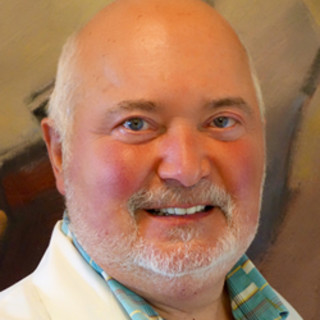
Almost twenty years ago, a small group of PA leaders addressed the issue that many clinical positions claimed to fulfill the same professional role as a PA. Determined to bring attention to PAs’ uniqueness, we designed a slogan that we wore on our lab coats: "Often Imitated…Never Duplicated." That expression sums up who we are — with pride. We are so much more than an organization or a profession — we are an ever-evolving mission — in constant metamorphosis, delivering cutting-edge medical care. John F. Kennedy said, “Change is the law of life. And those who look only to the past or present are certain to miss the future.” Because things are the way they are, things will not stay the way they are. This is why we are a profession of leaders. Not all of us hold a national or state position, but we can and must continue to affect positive change.
We are faced with many choices that influence how we are perceived and how we can distinguish ourselves from other providers. At this point in our evolution, our focus remains an absolute commitment to excellence. The only limits are, as always, those of vision. I remember sitting down with Jeremy, a PA Program Director at Lynchburg University. We were waiting for a PAs For Tomorrow board meeting to begin. As fellow board members, we spoke casually and he mentioned a vision he had of starting a doctoral program at Lynchburg. Jeremy took that vision and dream, and made it into a reality. Sometimes I am asked, "Why do you support that company or course or program?" Support is much more than an endorsement. It is an affirmation of quality whether for a specific program, course or degree. Simply, support is a component of excellence.
Fifty years ago, we would have never thought that a PA might need a doctorate degree, as one is not needed to practice. But advanced degrees denote a striving for excellence, as well as parity with other professions. We are no longer an emerging profession, we are an evolving profession. And central to that evolution is the recognition of professional excellence in its many guises.
There are certain programs which I recommend to all those in specialty areas or in primary care. Among those is a pharmaceutical course which is two days in length every two years. No, it is not mandatory, but yes, it will help us to better understand the newest medications and rationale for prescribing them. It will alert us to interactions and cross sensitivities as well as black box warnings.
Many of our specialties involve the art of suturing. I support advanced suture workshops which teach 12 or more techniques and address the “when and why” we use a technique or a certain type of suture. I’ve hosted many such workshops for industry, PAs, and NPs for more than 20 years, and I have many talented peers who do the same. Suturing is an art — like preparing a good steak there are many ways of doing it.
Last month, I advocated for an ultrasound course. I had no personal ties to it, but after reading the content, I felt that it was necessary in our practices. Mastery of reading an ultrasound can mean the difference between life and death in trauma situations as well as in diagnosing a plethora of medical and surgical emergencies.
Learning echocardiograms and EKGs is essential for both primary care and cardiology PAs. Look for a nationally certified course and become an expert. Splinting and casting are essential skills. Every PA should go beyond PA school training and learn the pitfalls and techniques to prevent catastrophes such as compartment syndrome. A surgical PA or a critical care PA must be prepared to read CT scans and MRIs. We should not need a physician to interpret these studies. We have the same capacity and obligation for excellence.
And we are now in the age of the critical care specialist. PAs shine in this arena and are sought after in hospitals and have proven to be a valuable asset to all physicians but most importantly, to patients.
Another important area of concern, which has been a personal passion of mine for many decades, is the vital issue of malpractice protection which enables PAs to practice with assurance and peace of mind. I recommend CM&F who has supported the PA profession for decades and is endorsed by AAPA. Their product has the features and benefits which PAs need most, at very competitive rates and is underwritten by a top-rated carrier.
So, what are your feelings on this topic? Our lives, both personal and professional often leave us with little time to reflect, evaluate and engage in honest self-criticism, but we must in order to maintain our focus on excellence! Remember, you are a PA-C — often imitated, never duplicated.







